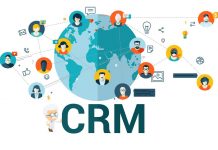Ever wonder how taxes work in New York? Well, the NY Department of Taxation and Finance is the place to start. They handle everything from business taxes to personal income taxes. This guide will help you understand what they do and how you can stay compliant. Whether you’re a business owner or just filing your personal taxes, knowing the ins and outs can save you time and money.
Key Takeaways
- The NY Department of Taxation and Finance is crucial for managing taxes in New York.
- Understanding business taxes is essential for compliance and avoiding penalties.
- There are various tax benefits and incentives available for businesses in New York.
- Sales and use tax is a significant part of New York’s tax system.
- Filing personal income taxes correctly can prevent costly mistakes.
Overview of the NY Department of Taxation and Finance
The New York Department of Taxation and Finance plays a crucial role in managing the state’s tax system. It ensures that tax laws are applied fairly and consistently, providing essential services to both individuals and businesses.
Role and Responsibilities
The department is responsible for administering tax laws and collecting taxes due. It oversees various taxes, including income, sales, and property taxes. This involves processing tax returns, issuing refunds, and ensuring compliance with state tax laws. Additionally, it provides guidance and resources to help taxpayers understand their obligations.
Key Services Offered
The department offers a range of services to assist taxpayers:
- Tax Filing Assistance: Providing tools and resources for electronic filing and payment.
- Taxpayer Education: Offering workshops and online resources to educate taxpayers on their rights and responsibilities.
- Audit and Compliance: Conducting audits to ensure tax compliance and addressing discrepancies.
Contact Information
For any inquiries, the department can be reached through various channels:
- Phone: Dedicated helplines for different tax types.
- Online: Comprehensive resources and contact forms available on their official website.
- In-Person: Local offices across the state for direct assistance.
The New York Department of Taxation and Finance is committed to providing clear and accessible information to help taxpayers meet their obligations efficiently.
Understanding New York State Business Taxes
Types of Business Taxes
In New York, businesses encounter a variety of taxes depending on their structure and operations. Corporation tax applies to entities incorporated in the state or conducting business there. This tax is based on net income, with rates ranging from 6.5% to 11% for income exceeding $10 million. Additionally, businesses must consider sales tax, which is a combination of the state rate and any applicable local rates. Pass-through entities like partnerships and S corporations face unique tax scenarios, where business income is reported on individual tax returns.
Tax Rates and Regulations
New York’s tax regulations are complex, with different rates applying to different types of businesses. For corporations, the tax rate is progressive, increasing with income. The state also imposes a franchise tax based on business income or a fixed dollar minimum tax. Local jurisdictions, such as New York City, may levy additional taxes, adding to the overall burden. Staying informed about these regulations is crucial for compliance and financial planning.
Resources for Business Owners
New York State offers several resources to assist business owners with their tax obligations. The New York Business Express portal is a comprehensive tool for managing filings and payments. Additionally, the Voluntary Disclosure Program allows businesses to resolve outstanding tax liabilities. For ongoing updates, the state’s email subscription service provides crucial information on tax changes and filing requirements.
Understanding New York State business taxes is essential for successful management and compliance. By familiarizing yourself with the various tax types and utilizing available resources, you can navigate the state’s tax landscape more effectively.
Compliance with New York State Tax Laws
Registration and Filing Requirements
Getting your business set up with the New York State Department of Taxation and Finance is step one. You’ve got to register for state taxes, which means securing an Employer Identification Number (EIN) and signing up for any relevant taxes like sales tax or withholding tax. Once you’ve registered, the next task is filing your tax returns. The type of business you run will dictate whether you’re filing federal taxes with the IRS or state taxes with the Department of Taxation and Finance. Timely tax payments are crucial to avoid penalties and interest.
Penalties for Non-Compliance
Missing a tax deadline in New York can lead to some hefty penalties. If you don’t file or pay your taxes on time, you’re looking at late fees and interest. The longer you wait, the more it adds up. It’s not just about the money, though. Non-compliance can also mean audits, and no one wants the stress of that.
Voluntary Disclosure Program
If you’ve got unreported taxes, New York’s Voluntary Disclosure Program might be your saving grace. This program lets businesses come clean about any unpaid taxes without the fear of penalties or criminal charges. It’s a chance to settle your accounts and start fresh.
Being proactive about your tax compliance not only saves money but also keeps your business running smoothly. Staying informed and up-to-date with the latest tax regulations is key to avoiding unnecessary headaches.
Sales and Use Tax in New York

What is Sales and Use Tax?
In New York, sales tax is a levy imposed on the sale of certain goods and services. Introduced in 1965, the state’s base sales tax rate is 4%, but local jurisdictions can add their own taxes, which can bring the total rate up to 8.875% depending on the location. Businesses are required to collect this tax from customers and remit it to the state. Use tax, on the other hand, applies to goods that are consumed in New York but purchased elsewhere tax-free. For instance, if a construction company buys materials tax-free and uses them in New York, they must pay use tax on those materials.
Exemptions and Special Cases
Not all goods and services are subject to sales tax in New York. Some items, like most groceries, prescription medications, and certain medical supplies, are exempt. Additionally, specific customers, such as government entities and some nonprofits, may be exempt. To validate these exemptions, sellers must obtain proper documentation, like exemption certificates, from buyers. It’s crucial for businesses to stay updated on the latest rules from the New York Department of Taxation and Finance to ensure compliance and avoid penalties.
Filing Sales Tax Returns
Once a business collects sales tax, it must be filed and remitted to the state. The frequency of these filings—whether quarterly, semi-annually, or annually—depends on the amount of tax collected. Businesses must also maintain accurate records and ensure timely filings to avoid penalties. It’s important to remember that sales tax collected is not the business’s money; it belongs to the state. As an intermediary, the business’s role is to transfer these funds from the consumer to the tax authorities.
Tax Benefits and Incentives for New York Businesses
New York State offers a range of tax benefits and incentives aimed at fostering business growth and attracting new enterprises. These programs are designed to support various sectors and encourage economic development across the state.
Available Tax Credits
Businesses in New York can take advantage of numerous tax credits designed to reduce their tax burden and promote expansion. Some of the key credits include:
- Qualified Emerging Technology Companies (QETCs): These companies can benefit from credits like the QETC facilities, operations, and training credit. This is aimed at supporting tech development.
- Qualified New York Manufacturers: Manufacturers in the state can enjoy benefits such as reduced corporate tax rates and investment tax credits, helping to sustain operations and create jobs.
- Employment-Based Tax Credits: Programs like the Work Opportunity Tax Credit offer incentives for hiring from specific groups, promoting diversity and inclusion.
Incentives for New Businesses
New businesses can benefit from programs like START-UP NY, which provides tax-free zones for new and expanding businesses. This initiative aims to attract businesses to the state by offering significant tax breaks.
- Tax-free zones for ten years
- Access to academic resources
- Support for research and development
How to Apply for Benefits
To access these benefits, businesses must meet specific eligibility criteria and file the necessary documentation with the New York State Department of Taxation and Finance. Here’s a simple guide to get started:
- Determine Eligibility: Review the criteria for each program to ensure your business qualifies.
- Gather Documentation: Collect all required documents, such as business registration and financial statements.
- Submit Applications: Follow the application process as outlined by the relevant New York State agency.
Note: Taking advantage of these incentives not only reduces operational costs but also positions your business for long-term success in New York’s competitive market.
Navigating Personal Income Tax in New York
Filing Requirements and Deadlines
Filing your personal income tax in New York can feel overwhelming, but it doesn’t have to be. The key is understanding the filing requirements and deadlines. Residents and non-residents alike must file if their income exceeds certain thresholds. Generally, the deadline aligns with the federal tax deadline, typically April 15th, but extensions are available if needed. Keep an eye on any changes that might affect these dates.
Deductions and Credits
New York offers several deductions and credits that can lower your tax burden. Some common deductions include those for mortgage interest, property taxes, and student loan interest. Credits, on the other hand, might include the Empire State Child Credit or the Earned Income Credit. Make sure to explore all available options to maximize your refund or reduce what you owe.
Common Mistakes to Avoid
Avoiding common mistakes can save you time and money. Here’s a quick list:
- Double-check all personal information, like Social Security numbers.
- Ensure you report all income, even from side gigs or freelance work.
- Don’t forget to sign your return—an unsigned return is considered invalid.
Staying informed about the nuances of New York’s personal income tax system can prevent unnecessary stress and financial penalties. Taking the time to understand your obligations and available benefits is well worth the effort.
Property and Estate Taxes in New York

Understanding Property Tax
Property taxes in New York are a key part of the state’s revenue system. They are primarily levied on real estate properties and are collected by local governments. The rates can differ significantly from one municipality to another, so it’s important to check the specific rates in your area. For homeowners and businesses alike, knowing the property tax rates and due dates in your locality is crucial to avoid penalties.
Here’s a simple breakdown of what you need to know:
- Property taxes are based on the assessed value of your property.
- Local governments determine the tax rate, which can change annually.
- Payments are typically due in installments, often semi-annually or quarterly.
Staying informed about local property tax regulations and deadlines is essential to ensure compliance and financial planning.
Estate Tax Considerations
New York imposes an estate tax on the transfer of estates above a certain threshold. The tax rate can be as high as 16% for the largest estates. This means careful planning is needed if you want to minimize the tax burden on your heirs.
Here are some key points to consider:
- The estate tax applies to the total value of the deceased’s estate, including real estate, cash, and other assets.
- The estate tax threshold is subject to change, so it’s important to stay updated on current limits.
- Professional advice can be invaluable in estate planning to ensure all legal avenues for tax reduction are explored.
For those involved in estate planning, understanding how the functions of hedge funds might play into your financial strategy can be beneficial.
Compliance and Planning
Compliance with property and estate taxes in New York requires careful planning and timely action. Here are some steps to help you stay on track:
- Regularly review your property’s assessed value and appeal if you believe it’s incorrect.
- Keep abreast of changes in estate tax laws and thresholds.
- Consider consulting with a tax professional to ensure your estate planning strategies are up-to-date and compliant with current laws.
Understanding these taxes is not just about compliance; it’s about smart financial planning for the future. By keeping informed and planning ahead, you can manage your tax obligations effectively.
Insurance and Unemployment Tax Obligations
Types of Required Insurance
In New York, businesses must have certain types of insurance to operate legally. Workers’ compensation insurance is mandatory for most employers, ensuring that employees receive benefits if they get injured on the job. Additionally, disability insurance is required, providing partial wage replacement to employees unable to work due to non-work-related injuries or illnesses. These insurances protect both the employee and employer, fostering a safer and more secure workplace environment.
Registering for Unemployment Tax
Employers in New York are also required to register for unemployment insurance tax. This is done through the New York State Department of Labor. The unemployment insurance program provides temporary income to workers who have lost their jobs through no fault of their own. To register, employers must provide details about their business and employees, ensuring compliance with state regulations.
Staying Compliant with State Regulations
Staying compliant with New York’s tax and insurance regulations involves several key steps:
- Regular Updates: Frequently check for updates on the New York State Department of Labor and Department of Taxation and Finance websites to stay informed about any changes in laws or requirements.
- Timely Payments: Ensure that all insurance premiums and unemployment taxes are paid on time to avoid penalties.
- Record Keeping: Maintain accurate records of all insurance policies, tax filings, and related documents to ensure compliance during audits or reviews.
Understanding and fulfilling these obligations helps businesses avoid legal issues and financial penalties, allowing them to focus on growth and development.
Conclusion
In wrapping up our exploration of the New York Department of Taxation and Finance, it’s clear that understanding state taxes is a key part of running a business in New York. Whether you’re dealing with corporate taxes, sales taxes, or personal income taxes, knowing your obligations can help you stay compliant and avoid any unwanted surprises. The resources provided by the department, like the New York Business Express portal and various calculators, are there to assist you in navigating these complexities. By staying informed and proactive, businesses can not only meet their tax responsibilities but also take advantage of any benefits and incentives available. Remember, a well-managed tax strategy is not just about compliance—it’s about setting your business up for success in the Empire State.
Frequently Asked Questions
What is the role of the NY Department of Taxation and Finance?
The NY Department of Taxation and Finance is in charge of collecting taxes, managing tax laws, and helping taxpayers understand their responsibilities in New York State.
What types of business taxes exist in New York?
In New York, businesses may need to pay corporation tax, sales tax, and withholding tax, among others. The exact taxes depend on the type and size of the business.
How can I contact the NY Department of Taxation and Finance?
You can contact them through their official website, by phone, or by visiting one of their local offices for assistance.
What happens if I don’t follow New York State tax laws?
If you don’t follow the tax laws, you might face penalties, interest on unpaid taxes, and other legal consequences.
Are there any tax benefits for new businesses in New York?
Yes, New York offers various tax credits and incentives to help new businesses grow and succeed. These can include credits for hiring, investing in equipment, and more.
What is the sales tax rate in New York?
The state sales tax rate in New York is 4%, but local areas can add more, making the total rate up to 8.875% in some places.

Peyman Khosravani is a global blockchain and digital transformation expert with a passion for marketing, futuristic ideas, analytics insights, startup businesses, and effective communications. He has extensive experience in blockchain and DeFi projects and is committed to using technology to bring justice and fairness to society and promote freedom. Peyman has worked with international organizations to improve digital transformation strategies and data-gathering strategies that help identify customer touchpoints and sources of data that tell the story of what is happening. With his expertise in blockchain, digital transformation, marketing, analytics insights, startup businesses, and effective communications, Peyman is dedicated to helping businesses succeed in the digital age. He believes that technology can be used as a tool for positive change in the world.






































